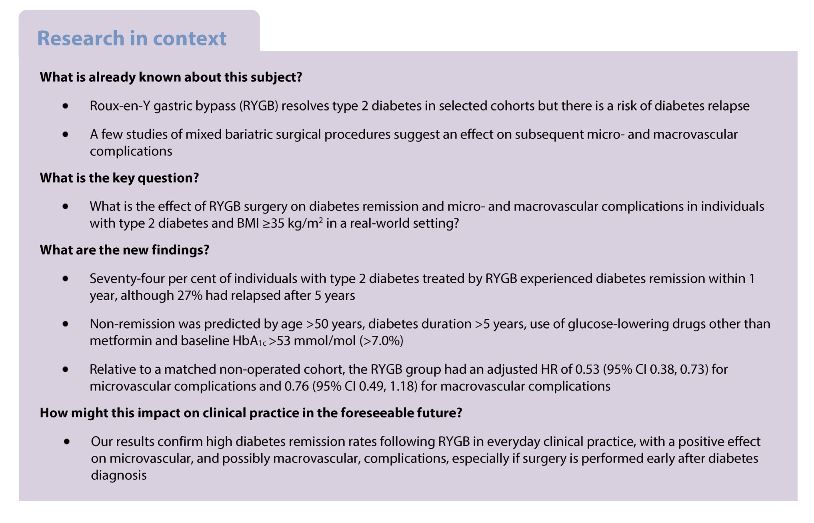Getting Back to Basics: How Green is Good
While most know there are great benefits to getting out in nature, Medical News Today has released a study showing that simply viewing nature can reduce cravings such as smoking, excessive drinking, and unhealthy eating.

Walking in nature has been shown to reduce cortisol and improve mood. Now though, research suggests even simply seeing green spaces through your window can reduce unhealthy cravings!
As health care professionals, we can recommend nature viewing as a stress-relieving intervention that can be incorporated daily for extra health benefits. Whether using public green spaces, looking through your bedroom or office window, or visiting a neighborhood garden, all of these have been associated with lessening the frequency and intensity of cravings.
This is great new for people trying to quit habits such as smoking, excessive drinking, and unhealthy eating. Read more from Medical News Today for full details.
Sign up for Diabetes Blog Bytes – we post one daily Blog Byte from Monday to Friday. And of course, Tuesday is our Question of the Week. It’s Informative and FREE! Sign up below!
[yikes-mailchimp form=”1″]Do topical steroids increase risk of type 2 diabetes?
Based on a study published in Diabetes Care in April 2019, it appears that there is a positive association between use of topical corticosteroids and new incident diabetes.

A Danish case-control study collected health care data from people who were diagnosed with new onset Type 2 diabetes in Denmark and the United Kingdom.
A total of 115,218 in Denmark and 54,944 in the UK were identified with new diabetes.
The researchers found that topical corticosteroid use was significantly associated with new onset diabetes of diabetes in both groups. In the Danish group (adjusted odds ratio was 1.35) and U.K. group (adjusted odds ratio was 1.23).
They also found that there was a significant dose response relationship. The more potent the steroid the higher the incident risk of diabetes.
The next question to be addressed is if topical steroid cream increases blood glucose in those with existing diabetes.
Read the “Association Between Topical Corticosteroid Use and Type 2 Diabetes in Two European Population-Based Adult Cohorts” Diabetes Care Abstract here.
Sign up for Diabetes Blog Bytes – we post one daily Blog Byte from Monday to Friday. And of course, Tuesday is our Question of the Week. It’s Informative and FREE! Sign up below!
[yikes-mailchimp form=”1″]Gastric Bypass Surgery associated with high type 2 diabetes remission rates
A recent study conducted by the Aarhus University Hospital in Denmark found that three out of every four persons living with obesity and type 2 diabetes who receive a RYGB ( Roux-en-Y Gastric Bypass) experience remission within one year. Remission is defined as blood glucose levels at non-diabetes range without using diabetes medications.
This study followed 1,111 individuals who had an elevated BMI and type 2

The results of this study for people with type 2 and a BMI of 35 or greater who had RYGB:
- 74% of individuals experienced diabetes remission within one year
- 27% of these individuals relapsed after approximately five years.
- Those less likely to experience diabetes remission included:
– those over 50,
– diabetes duration > 5 years,
– use of glucose lowering drugs other than metformin
– baseline A1c of more than 7%
In addition, those who had RYGB surgery had a significantly reduced risk of microvascular and possibly macrovascular complications compared to those who did not have surgery.
According to the authors of the study, RYGB is associated with a high remission rate and a decreased rate of vascular complications, especially if surgery in performed early after diabetes diagnosis.

For more information on this topic, read the full study in Diabetologia- Effect of Roux-en-Y gastric bypass surgery on diabetes remission and complications in individuals with type 2 diabetes: a Danish population-based matched cohort study.
Sign up for Diabetes Blog Bytes – we post one daily Blog Byte from Monday to Friday. And of course, Tuesday is our Question of the Week. It’s Informative and FREE! Sign up below!
[yikes-mailchimp form=”1″]A change of screen culture needed to prevent metabolic syndrome in teens
According to a study presented during the 2019 annual Endocrine Society Meeting, metabolic syndrome in teens may be directly correlated with screen time and eating snacks.

“Metabolic syndrome includes high blood pressure, high blood sugar, excess visceral adiposity and abnormal cholesterol levels. The syndrome increases a person’s risk for heart attack and stroke.”
Screen time is often associated with other negative behaviors such as snacking, eating excessively, and lack of movement.
Researchers found the teens spending 6 or more hours of screen time were more likely to develop metabolic syndrome. The odds were even higher for teens who reported snacking during those hours.
“Eating unhealthy snacks in front of screens is a habit that is probably harmful, but the relationship between this and obesity is well-known, but not with metabolic syndrome.” This research demonstrates that there is a relationship between snacking and metabolic syndrome.
A study of Cardiovascular Risks in Adolescents in Brazil analyzed the data from over 34,000 teens between the ages of 12 and 17. The teens were to write down their screen time habits daily and whether or not they were snacking.
“Snacking while watching TV was reported by 85.1% of the study population, and snacking while playing video games or using the computer was reported by 64%.”
“Strategies to assess and address metabolic syndrome in the pediatric population should aim at limiting unhealthy snacks while in front of screens,” Lead researcher Schaan said.

Shift in community and screen culture needed
Researchers recommend making an intervention on unhealthy habits that form during childhood. However, they believe that there may need to be a bigger shift in community culture.
As healthcare professionals we want to prompt a healthy lifestyle particularly at a young age. The habits we set as adolescents often transfer into adulthood.
To learn more: Metabolic Syndrome more likely in teens who snack while watching TV – Endocrine Today
Sign up for Diabetes Blog Bytes – we post one daily Blog Byte from Monday to Friday. And of course, Tuesday is our Question of the Week. It’s Informative and FREE! Sign up below!
[yikes-mailchimp form=”1″]Free Resource Friday | Preparing for the CDCES Exam Webinar

Join us live with your questions on August 2, 2019 @ 11:30 a.m. PST!
Coach Beverly offers this FREE webinar to help get you prepare for the CDCES Exam. All her tips and tricks are meant to ease your mind and reflect the updates to the CDCES content outline. Register below with a name and email and you can join us live next Friday!
Topics covered include:
- Changes in requirements for 2019
- Exam eligibility and test format
- Strategies to succeed
- Review of study tips and test taking tactics.
We will review sample test questions and the reasoning behind choosing the right answers.
After registering, you will receive a confirmation email containing information about joining the webinar.
Intended Audience: This FREE webinar is designed for individual or groups of diabetes educators, including RNs, RDs, Pharmacists, Nurse Practitioners, Clinical Nurse Specialists, Physician Assistants and other health care providers interested in achieving excellence in diabetes care and becoming Certified Diabetes Care and Education Specialists®.
Instructor: Beverly Thomassian RN, MPH, CDCES, BC-ADM is a working educator who has passed her CDCES Exam 6 times. She is a nationally recognized diabetes expert for over 25 years.
See our Preparing for CDCES Resource Page >>
Sign up for Diabetes Blog Bytes – we post one daily Blog Byte from Monday to Friday. And of course, Tuesday is our Question of the Week. It’s Informative and FREE! Sign up below!
[yikes-mailchimp form=”1″]Mindful Monday | Morning exercise, short breaks from sitting lower high blood pressure
An Australian study was published linking morning exercise and short walking breaks throughout the day to blood pressure control.
Society today calls for an increase in sitting for longer periods of time. Prolonged sitting can lead to higher blood pressure and increased blood pressure can lead to cardiovascular disease.
Australian scientists believe adding three-minute walking breaks throughout the day can help regulate blood pressure. Although it is known that exercise and short breaks can help lower blood pressure, scientists studied the benefits of combining the two.

“They recruited 67 men and women who were between 60 and 74 years old and overweight or obese. About 4 in 10 participants also had high blood pressure. Every participant completed three different day-long tests in random order, each separated by a minimum of six days. Researchers measured heart rate, blood pressure, blood sugar, and other blood markers during each test condition. “
During one test, participants sat for 8 hours straight and another they sat for an hour then walked for 30 minutes then went back to sitting for 6.5 hours. However, the last test participants sat for an hour then walked for 30 minutes, then sat back down but got up every 30 minutes for a 3-minute walking break.
The participants showed lower blood pressure throughout the day if any exercise was involved. “The biggest reduction was seen when people did the 30-minute treadmill exercise in the morning and took 3-minute walking breaks throughout the day – although the additional benefit of the walking breaks was seen only among women.”

Scientists were surprised that only women showed the benefits of lower blood pressure through the short 3 minute walking breaks. This finding leads researchers to believe there is a difference in blood pressure response and it could be affected by gender and epinephrine levels.
“We recognize that exercise is good, and we now have the awareness that prolonged sitting can increase blood pressure,” Bhammar told Reuters Health in a phone interview. “Now we need to build breaks into our routines as a default so we’re not sitting for four hours at a time.”
To learn more – Morning exercise, short breaks from sitting lower high blood pressure – Reuters
Sign up for Diabetes Blog Bytes – we post one daily Blog Byte from Monday to Friday. And of course, Tuesday is our Question of the Week. It’s Informative and FREE! Sign up below!
[yikes-mailchimp form=”1″]Free Resource Friday | Mindfulness & Compassion for Diabetes Educators
Join Heather Nielsen, MA, LPC, CHWC in this free webinar, as she walks you through hands-on strategies to incorporate mindfulness and compassion into our daily lives and professional practice.
This insightful webinar helps show how mindfulness and compassion can positively affect personal and professional relationships.
You can find additional resources and further reading on her webinar here.
Sign up for Diabetes Blog Bytes – we post one daily Blog Byte from Monday to Friday. And of course, Tuesday is our Question of the Week. It’s Informative and FREE! Sign up below!
[yikes-mailchimp form=”1″]One in five deaths worldwide linked to unhealthy diet
In 2017, a study found that 11 million deaths worldwide were linked to poor diet. The research demonstrated that too much sugar, salt, and processed meats can contribute to diabetes, cancer and cardiovascular disease.
Although there is still debate on the “ideal diet” a recent study recommended people double their intake of fruits, vegetables, and legumes and halve their intake of meat and sugar.
The study reviewed the diets of over 195 countries. “Consumption of healthier foods such as nuts and seeds, milk and whole grains was on average too low, and people consumed too many sugary drinks and too much processed meat and salt. This led to one in five deaths in 2017 being linked to unhealthy diets. “
A study from The Global Burden of Disease, from 1990 to 2017 found that an unhealthy diet was responsible for more deaths than any other health factor worldwide.
“The study found people ate only 12 percent of the recommended amount of nuts and seeds – an average intake of 3 grams a day, compared with the recommended 21 g – and drank more than 10 times the recommended amount of sugary drinks. Diets high in sugar, salt and bad fats are known risk factors for heart disease, stroke, diabetes and many types of cancer.”
The global diet also lacked in consumption of whole grains and doubled the recommended intake of processed meats.
As health care professionals we want to promote a healthy lifestyle and help encourage our community whenever we can. We have created a Plant-Based Eating Resource page and the “Joy of Six” sugar campaign to provide resources for healthy eating. We also invite you to join our Diabetes Education Course September 4-6, 2019, where nutrition expert Dana Armstrong discusses the importance of improving global and individual through diet.
The Joy of Six Campaign Materials
Diabetes Education Course September 4-6, 2019,
To learn more: One in five deaths worldwide linked to unhealthy diet – Reuters
Sign up for Diabetes Blog Bytes – we post one daily Blog Byte from Monday to Friday. And of course, Tuesday is our Question of the Week. It’s Informative and FREE! Sign up below!
[yikes-mailchimp form=”1″]







